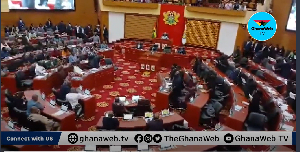MTN Ghana Limited, in collaboration with stakeholders, has called on the Bank of Ghana (BoG) to put together regulations that would promote growth in the area of mobile financial services.
Mr Eli Hini, the General Manager of Mobile Financial Services, MTN Ghana, made the call on Wednesday at the second stakeholders’ conference organised by MTN in Accra as part of the celebration of the 10th anniversary of the network’s Mobile Money (MoMo) service.
He said the company had witnessed a dynamic regulatory environment over the past decade that had been a key contributor to the growth of the MoMo service.
The regulatory environment, he said, included the introduction of branchless banking guidelines, introduction of E-Money Issuer and agents’ guidelines, as well as passing of the new payment system and services act.
He said some regulatory inputs made over the past decade in mobile financial services included changes in the regulations, interest payment, consumer protection, agent management, deposit protection, partnership, and interoperability services.
Mr Hini, speaking on the theme, “The Role of Regulations in Sustaining the Growth of Mobile Financial Services in Ghana,” urged policy makers to consider the minimum paid-up capital requirement for people to participate in the mobile money transaction, adding that, it was necessary for them to ensure that it did not become a disincentive for participation in the growing industry.
“Relevant taxes are being paid by customers who use the service just like any means of payment, therefore, implementing additional taxes on Mobile Financial Services will have a negative ripple effect in the service and other related industry,” he said.
The General Manager said MTN as an enabler, sought to grow the formal section, access to wider markets, reduce physical cash dominance and upsurge related industries.
For mobile money to scale successfully as a digital payment solution, Mr Hini said it needed to offer users the same ubiquity of acceptance.
He also urged policy makers to consider the growth of financial technologies to support speed of new products and services, promote adoption of new services to market, and deepen cyber security policy discussion to standardise its implementation across the various industries.
Mr Philip Abradu-Otoo, the Head of Research Department, Bank of Ghana, speaking from the regulators point of view, said using mobile money as the country’s payment system had helped the country to strategize its continuous role toward fully digitized and inclusive financial sector.
He said recent data showed that the number of active mobile money accounts in the country had increased to about 12.7 million in the first quarter of 2019 compared the 345,000 in 2012.
Mr Abradoo-Otoo said it was for this reason that, the national financial inclusion development strategy and the payment system strategy was developed to fully formalise the economy.
Mr Michael Amankwah, the Chief Executive Officer of CoreNett Limited, said it was by no chance that Ghana was projected as the fastest growing mobile money country in the world and was expected to be the fastest growing economy by 2020, saying, business entities especially the private sector had worked hard to achieve it.
“If you are in a position of authority, granting approval to applications, it’s not an opportunity to do big boss things, don’t frustrate businesses that come to do business with you,” he advised Heads of organisations.
Mr Akinwale Goodluck, the Head of GSM Association, Sub-Saharan Africa, said the favourable regulatory environment had played a significant role in driving mobile money adoption and financial inclusion in Ghana, which stands at 58 per cent according to the Global Findex.
West Africa, he said, was now leading in growth of mobile money in Sub-Saharan Africa with Ghana leading the growth in the Region.
Mr Goodluck noted that the country’s current (2018) minimum capital requirement for mobile money operators is 4.16 per cent relative to the minimum capital requirement for banks under the current regulatory framework marginally higher than the median.
The median minimum capital requirement for mobile money providers relative to the minimum capital requirements for banks is three per cent, he disclosed.
He called on government to explore ways to broaden the tax base by encouraging the use of mobile money transactions for government payments.
Business News of Thursday, 8 August 2019
Source: ghananewsagency.org
MTN, Stakeholders urge BoG to steer growth of mobile financial services
Entertainment












